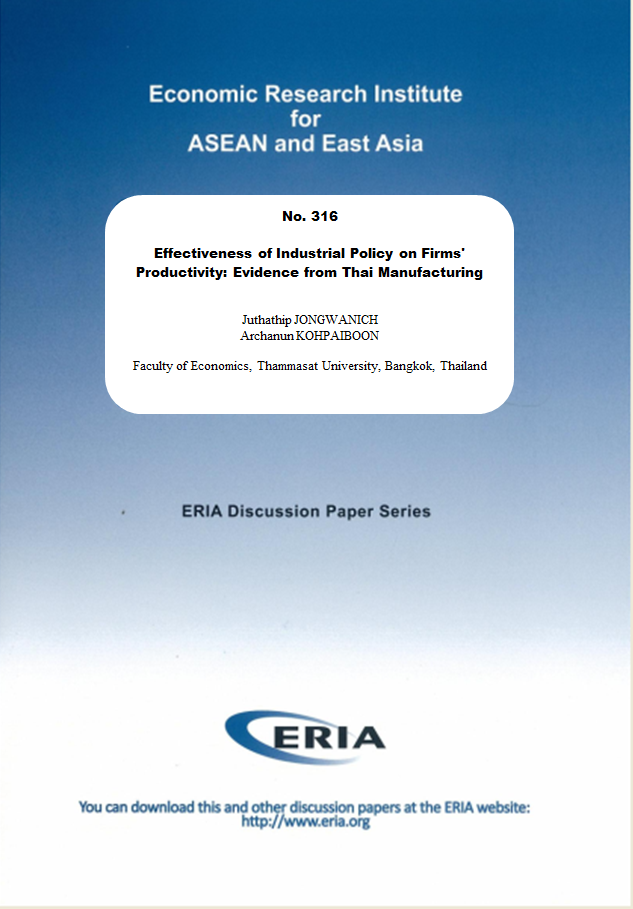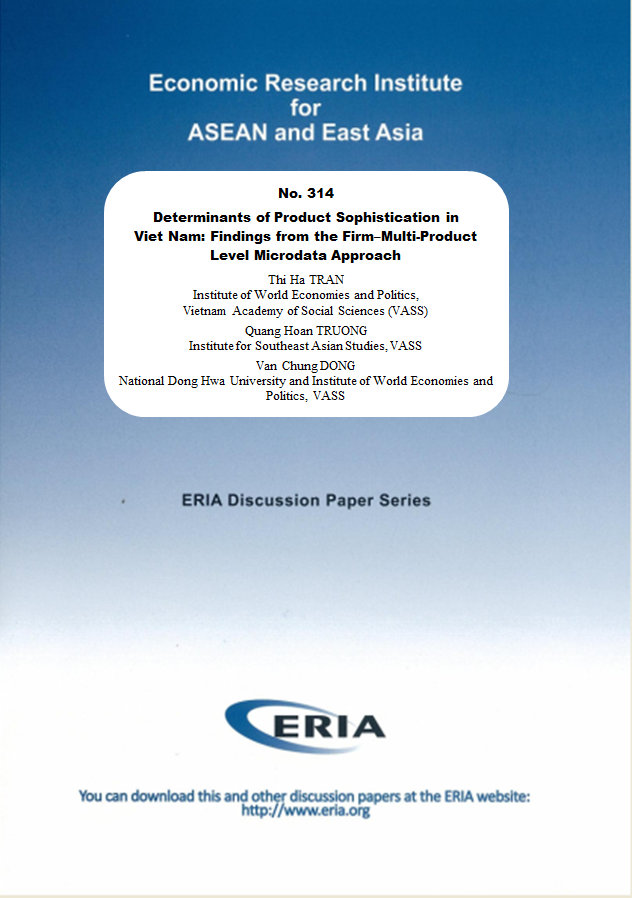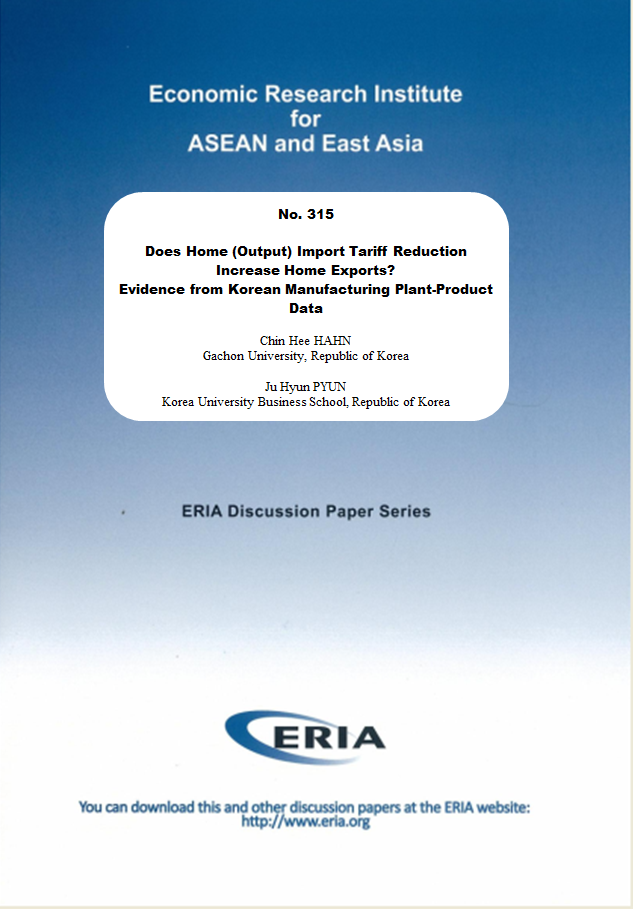Effectiveness of Industrial Policy on Firms’ Productivity: Evidence from Thai Manufacturing

Date:
6 February 2020Category:
Thailand, Industry and ManufacturingType:
Discussion PapersTags:
industry and manufacturing, microdata, productivity, ThailandPrint Article:
This paper examines the role of industrial policy on firms’ productivity, using 3 years of panel data on Thai manufacturing as a case study. A range of industrial policy tools is defined – tariff measures, subsidies, and investment incentives through the Board of Investment (BOI) – which are the main tools used in Thailand. The effect on firm productivity of partial trade liberalisation undertaken through free trade agreements (FTAs) signed between Thailand and its trading partners is also examined. The key finding is that trade openness and research and development (R&D) are more crucial in fostering firms’ productivity than industrial policies. This is especially true for the narrow definition of industrial policy focusing on trade policy protection, measured by the effective rate of protection. In addition, the FTA-led trade liberalisation effect fails to add substantial competitive pressure and make firms improve productivity. Our results show that sectors benefiting from subsidies show noticeably lower productivity than others. Our study found weak support for investment promotion policy through the BOI, even when the domestic competitive environment is considered in our analysis.
.
Effectiveness of Industrial Policy on Firms’ Productivity: Evidence from Thai Manufacturing




